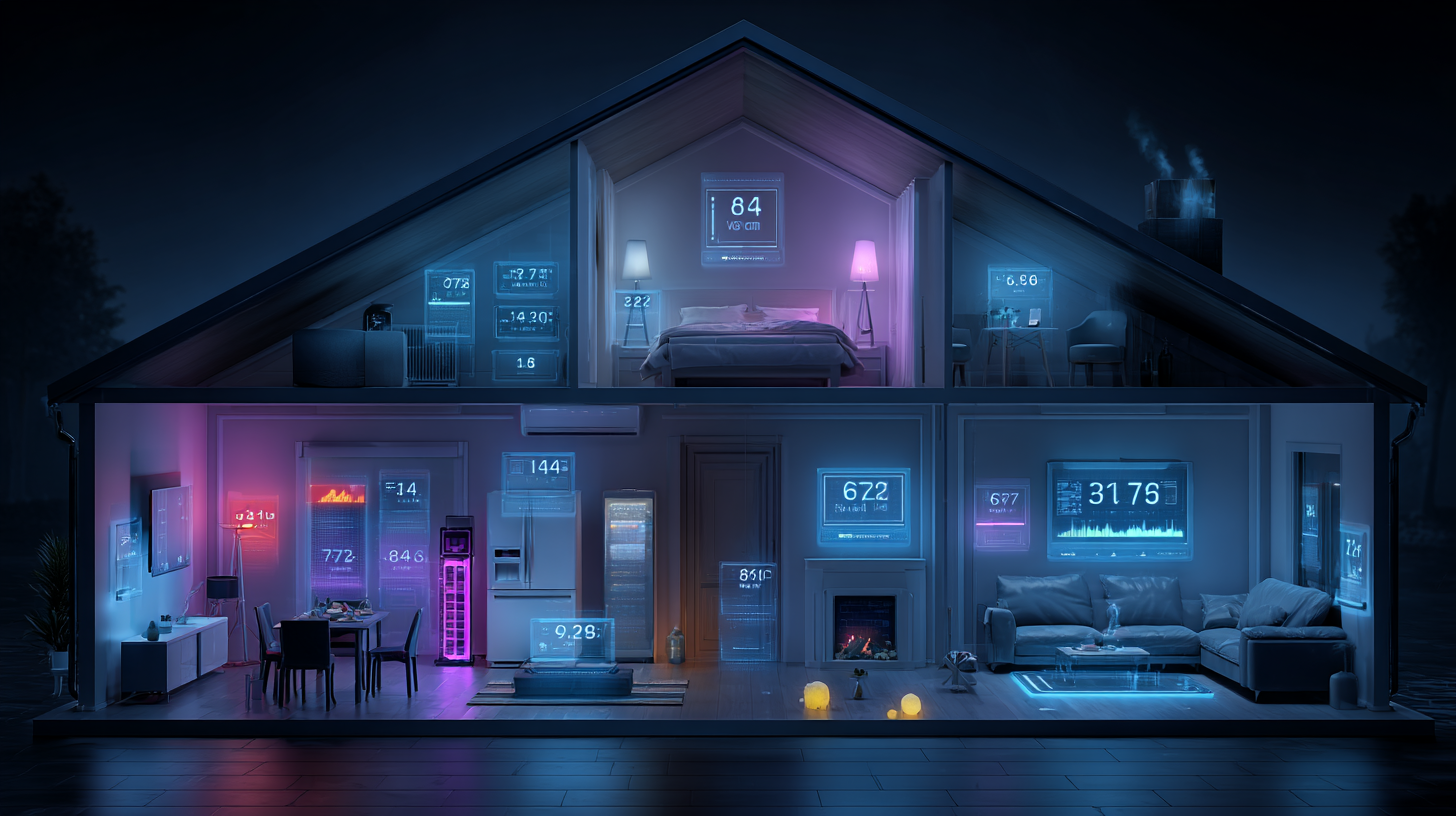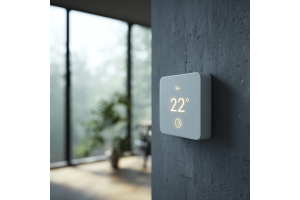
Introduction: A Heating Revolution Is Underway
Across the UK and Europe, heating is changing faster than at any point in modern history. Gas boilers, once the unquestioned standard, are being phased out as governments push for lower emissions, higher efficiency, and cleaner energy systems. Homes are being redesigned around electric radiators, heat pumps, smart controls, and renewable energy sources—ushering in a new era of sustainable comfort.
The shift isn’t just environmental. Electric heating is now smarter, safer, more controllable, and often more economical than traditional gas-based systems, especially in modern, well-insulated homes.
This article explores why the future of heating is electric, what technologies lead the transformation, how electric solutions compare with gas, and what UK homeowners should consider when planning for the years ahead.
1. Why the UK Is Moving Toward All-Electric Heating
1.1 Climate Targets & Government Policies
The UK has committed to achieving net zero carbon emissions by 2050. Since heating accounts for over one-third of household emissions, the government is:
-
Phasing out new gas boilers by 2035
-
Promoting heat pump adoption through grants
-
Encouraging home energy efficiency upgrades
-
Increasing investment in renewable electricity generation
As the electricity grid becomes greener, electric heating automatically becomes cleaner every year.
1.2 The Grid Is Getting Greener
The UK already generates a huge percentage of electricity from low-carbon sources, including:
-
Wind power (offshore and onshore)
-
Solar
-
Hydropower
-
Nuclear energy
This means every kilowatt-hour used to heat your home today already has a much lower carbon footprint than it did a decade ago—and it continues to drop annually.
1.3 Electric Systems Are More Efficient
Modern electric radiators convert 100% of electricity into heat. Heat pumps can achieve even more impressive performance, generating 3–4x more heat energy than the electricity they consume.
Gas boilers, by comparison, typically achieve 85–94% efficiency, with additional losses through flues and pipes.
1.4 Safety & Maintenance Advantages
Electric systems:
-
Have no combustion
-
Produce no carbon monoxide
-
Require minimal servicing
-
Have simpler installations
-
Don’t rely on gas pipework, flues, or ventilation
For many households, safety and low maintenance alone make electric heating the simpler long-term choice.
2. The Core Technologies Driving the All-Electric Future
2.1 High-Efficiency Electric Radiators
Electric radiators have evolved far beyond simple “plug-in heaters.” Modern options include:
-
Thermal-fluid (oil-filled) radiators
-
Dry thermal stone-core radiators
-
Infrared heating panels
-
Smart WiFi-enabled radiators
-
Designer radiators that act as heating and décor
Many are compatible with smart thermostats, zoned heating controls, and energy-saving algorithms.
Key benefits:
-
Fast heat-up
-
Room-by-room control
-
No pipework required
-
Ultra-accurate thermostats
-
Zero maintenance
-
Stylish, modern designs
For homes replacing outdated gas systems, electric radiators offer the easiest upgrade path.
2.2 Heat Pumps (Air Source & Ground Source)
Heat pumps extract energy from the air or ground and use electricity to compress it into usable heat.
Why they’re important:
-
Up to 400% efficiency
-
Work with radiators or underfloor heating
-
Government incentives available
-
Can also provide cooling (for air source models)
Heat pumps are ideal for homeowners planning a full heating system transformation.
2.3 Electric Underfloor Heating
A favourite for open-plan homes, bathrooms, and kitchens, electric UFH offers:
-
Low running costs
-
Even heat distribution
-
Invisible heating (no radiators needed)
-
Perfect compatibility with renewable electricity
As insulation standards rise, underfloor heating becomes increasingly cost-effective.
2.4 Smart Controls & Intelligent Heating
Electric heating becomes most powerful when combined with smart systems:
-
WiFi thermostats
-
Individual radiator thermostats
-
Smartphone apps
-
Geofencing (heat when you’re home)
-
Learning algorithms
-
Usage analytics
-
Multi-zone control
Smart controls can reduce heating bills by 20–35%, making electric heating both greener and cheaper.
2.5 Integration with Home Solar + Batteries
Electric systems pair perfectly with:
-
Solar PV panels
-
Home energy storage
-
Smart tariffs (e.g., Octopus Agile, Intelligent Go)
This makes it possible to:
-
Heat your home with free solar energy
-
Charge batteries off-peak
-
Shift consumption to cheaper electricity periods
-
Reduce reliance on the national grid
Gas cannot compete with this level of optimisation.
3. Electric vs Gas Heating: A Detailed Comparison
| Feature | Electric Heating | Gas Heating |
|---|---|---|
| Efficiency | 100%+ (up to 400% for heat pumps) | 85–94% |
| Installation | Simple, no pipework | Complex, requires flues & gas-safe work |
| Running Costs | Varies with tariff; smart control reduces costs | Traditionally lower, but rising |
| Servicing | Little to none | Annual inspections required |
| Safety | No combustion or CO risk | CO risk, gas leaks possible |
| Future-proof | Fully aligned with UK net-zero goals | Being phased out in new builds |
| Control | Precise, zoned, smart | Whole-house systems less flexible |
| Design | Huge choice of designer radiators & infrared panels | Radiators depend on boiler output |
Winner: Electric, especially as electricity prices stabilise and gas regulations tighten.
4. Why Electric Heating Works Especially Well in Modern UK Homes
4.1 Homes Are Better Insulated
With:
-
Double/triple glazing
-
Cavity wall insulation
-
Roof insulation
-
Airtight building design
Newer homes require significantly less energy to maintain comfortable temperatures—perfect for electric radiators and heat pumps.
4.2 More Homes Are Being Designed Without Gas
New builds are often gas-free from day one, featuring:
-
Electric heating
-
Heat pumps
-
Solar and battery storage
-
Electric cooking appliances
-
EV charging
Electricity becomes the single central energy source—simple, clean, and efficient.
4.3 Greater Demand for Smart, Zoned Heating
Households want:
-
Heating in used rooms only
-
App control
-
Voice-activated heating
-
Lower energy waste
Electric systems are inherently zoned, making them ideal for this lifestyle.
5. Environmental Benefits of Going All-Electric
5.1 Zero On-Site Emissions
Electric heating produces no emissions inside your home—improving indoor and outdoor air quality.
5.2 Lower Carbon Footprint
Even on today’s grid, electric heating already beats gas in lifetime carbon emissions. As renewables increase, electric heating will naturally become net-zero.
5.3 Reduced Air Pollution
Burning gas contributes to NOx emissions. Electric heating completely removes this source of pollution.
6. Cost Considerations: Is Electric Heating Cheaper?
The honest answer: It depends.
Electric heating can be cheaper when:
-
Paired with smart controls
-
Used in well-insulated homes
-
Combined with off-peak tariffs
-
Supplemented by solar PV
-
Managed with zoned heating
In most modern UK homes, electric radiators run fewer total hours than a whole-house gas system—saving energy overall.
Heat pumps, meanwhile, offer the lowest long-term running costs for whole-house heating.
7. The Geyser Advantage: Leading the Shift to All-Electric
At Geyser, we specialise in high-quality, stylish, and efficient electric heating solutions designed for the future:
✔ Designer electric radiators
✔ Modern towel warmers
✔ Smart-compatible heating solutions
✔ Infrared heating panels
✔ Specialist advice for UK homeowners
Whether you're replacing an ageing gas boiler or building a future-proof electric home, Geyser offers the technology and expertise to help you make the transition with confidence.
8. How to Future-Proof Your Heating System Today
To get the most from your heating upgrade:
1. Insulate your home first
Reduces running costs regardless of heating type.
2. Choose a high-quality electric radiator or heat pump
Avoid budget heaters that lack proper thermostatic control.
3. Add smart controls and zoning
Improves comfort and reduces wasteful heating.
4. Consider solar PV if your roof is suitable
Allows partial or full fossil-free heating.
5. Plan for long-term energy trends
Gas is being phased out. Electricity is getting greener.
Conclusion: The Future Is Electric — Efficient, Clean, and Smart
The transition to all-electric heating isn’t just a trend—it’s an inevitable transformation driven by technology, economics, and environmental responsibility.
Electric heating is:
-
Cleaner
-
More efficient
-
Smarter
-
Safer
-
More flexible
-
Fully aligned with the UK’s net-zero future
With advanced electric radiators, heat pumps, smart controls, and renewable power integration, UK homeowners can enjoy comfortable, efficient heating that’s future-proof for decades to come.
And with Geyser’s expertise, upgrading to electric has never been easier.







